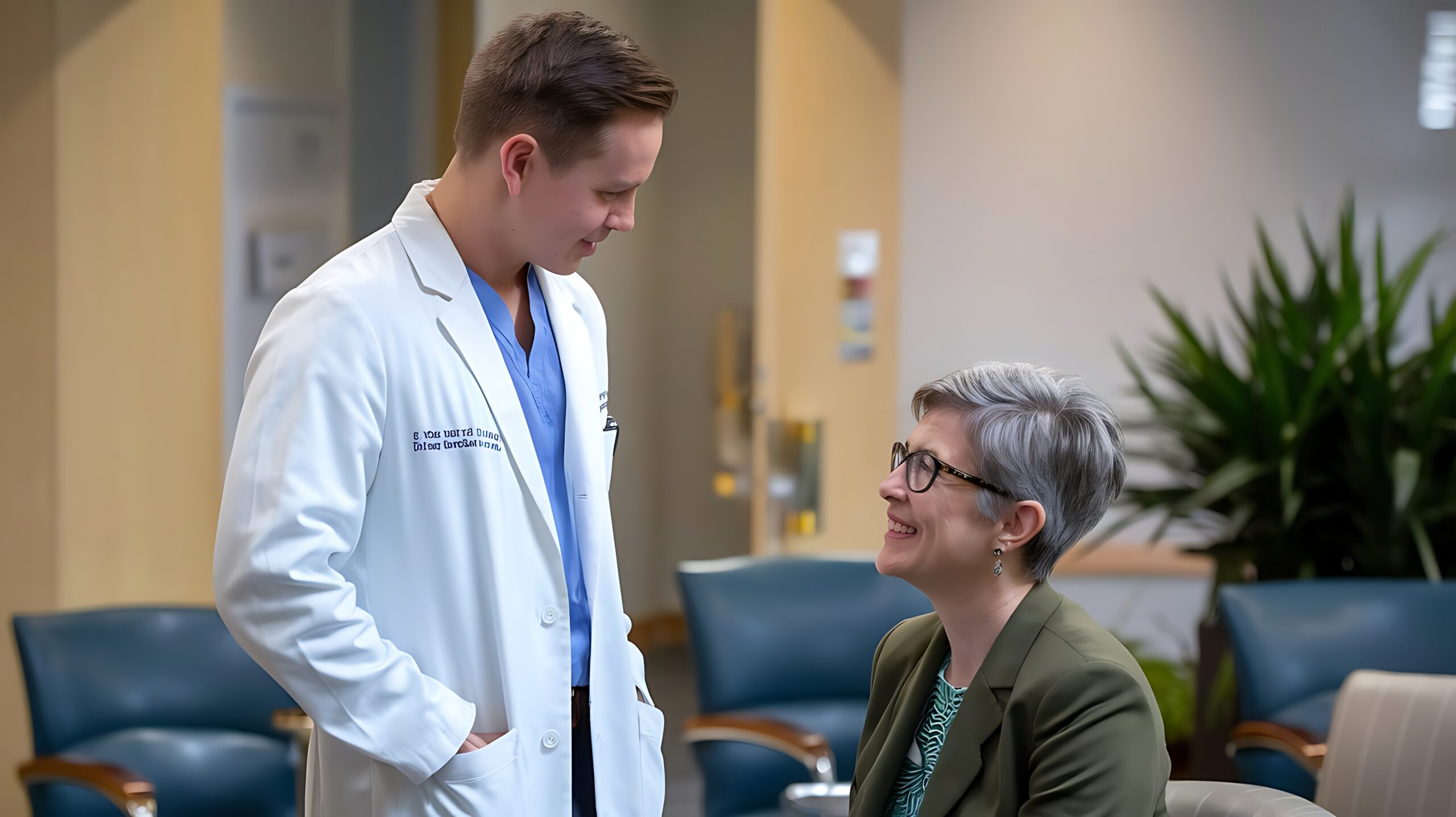What is a colon cancer screening?
Colorectal cancer ranks as the third most frequently diagnosed cancer. Fortunately, it’s also among the most preventable. The colon and rectum form the large intestine, which plays a key role in absorbing water and nutrients from digested food and storing waste until it is expelled.
A colon cancer screening involves examining the inner wall of the colon and rectum for polyps and cancerous growths, even when no gastrointestinal symptoms are present. Polyps are noncancerous growths that can potentially become cancerous over time. Detecting and removing colorectal polyps and malignant tumors early can prevent serious complications and reduce the risk of death from colon cancer.
The board-certified gastroenterologists at Gastroenterology Associates regularly conduct colon cancer screenings and recommend that all patients begin these screenings at age 45. To schedule a screening, please contact a Baton Rouge, LA location near you.

What are the benefits of colon cancer screenings?
Routine screenings for colon and rectal cancer are crucial for both general and gastrointestinal health. While various screening methods exist, such as stool testing, a colonoscopy remains the only strategy that can actively prevent colorectal cancer. Several benefits of colorectal cancer screenings include:
- Can be a life-saving exam
- Potentially detect colon or rectal cancer early on
- Identify and excise polyps in the colon and rectum
- Potentially prevent the development of colon cancer
- Detect other gastrointestinal issues, like inflammatory bowel disease
Colon cancer may not present symptoms until it reaches an advanced stage. Regular screenings allow your GI provider to identify and address any concerns or conditions early, significantly improving outcomes.
What colon cancer screening options are available?
It’s important to discuss with your GI provider about the appropriate timing and type of screening for colon cancer. The following tests are commonly used for colon cancer screening:
- Flexible sigmoidoscopy: A sigmoidoscope, a finger-sized tube with a camera, is used to view the inside of the rectum and lower colon. Inserted through the rectum, it displays images of the inner walls on a monitor. This test can biopsy polyps or tumors and remove some polyps. However, a colonoscopy is necessary to examine the entire colon and remove all polyps or tumors. While generally safe, there is a small risk of bowel tears, bleeding, and infection.
- Colonoscopy: Similar to a sigmoidoscope but longer, a colonoscope examines the entire colon. It is inserted through the rectum, and images of the entire colon are displayed on a monitor. Special tools can be passed through the colonoscope to take biopsies and remove polyps. Sedation is required. There is a minor risk of bowel tears, bleeding, or infection post-procedure. Notably, this is the only screening method that also serves as a prevention strategy.
- Virtual colonoscopy: This involves a computed tomography (CT) scan of the colon. The patient lies on a table, and the CT scanner takes cross-sectional images of the colon. This noninvasive method does not require sedation. If abnormalities are detected, a colonoscopy is needed to remove polyps or tumors.
- Double-contrast barium enema: A tube is inserted into the rectum, and barium sulfate (a white chalky liquid), along with air, is pumped into the colon. The barium coats the outer walls of the colon, and X-ray images reveal abnormalities. If any are found, a colonoscopy is needed to remove polyps or tumors.
- Fecal tests: These tests, performed on stool samples, are completely safe and can indicate abnormalities in the gastrointestinal tract, necessitating further testing. If results are positive, suggesting the presence of cancerous growths, a colonoscopy is required. There are three types of fecal tests:
- Fecal occult blood tests detect hidden blood in the stool through a chemical reaction.
- Fecal immunochemical tests detect blood using a specific immunochemical reaction to a protein in the blood.
- Stool DNA tests look for abnormal DNA from cancerous growths or polyps in the stool sample.
Who could be at risk for colorectal cancer?
Several factors increase the risk of developing colon cancer:
- People over 45 years of age
- Individuals with inherited familial adenomatous polyposis, a condition leading to numerous polyps in the colon and rectum
- People who have had colon cancer previously
- Women with a history of breast, ovarian, or uterine cancer
- Individuals with close family members, such as parents, siblings, or children, who have or had colon cancer
- People with ulcerative colitis or Crohn’s disease
- Individuals with a sedentary lifestyle, unhealthy eating habits, and those who smoke

Schedule your colon cancer screening at Gastroenterology Associates
Colon Cancer Screening FAQs
Why is having colon cancer screenings important?
Colorectal cancer typically develops from abnormal growths in the colon or rectum called polyps. During a colonoscopy, these premalignant polyps can be extracted to help reduce the risk of and possibly even prevent the development of colon cancer. Routine screenings for colon cancer may also allow physicians to identify cancer that has already developed. If colon or rectal cancer is diagnosed in the early stages, it may be easier to address.
When should I start undergoing colon cancer screenings?
Individuals who are at average risk for developing colon cancer should begin periodic screenings at 45. Those who have a greater risk may need to start these screenings earlier. Your GI specialist can help you ascertain when you should begin having colorectal cancer screenings.
How frequently should I have a colon cancer screening?
The frequency with which patients should undergo colorectal cancer screenings may vary according to the type of exam being performed. Generally, adults aged 45 and over should have a colonoscopy exam every decade when they have an average risk for colorectal cancer and experience colonoscopies with normal results. Individuals with a significantly high risk are advised to have colonoscopy screenings a minimum of once every five years. To determine how frequently you should undergo a colorectal cancer screening, please speak with your gastrointestinal specialist.
How should I prep for my colon cancer screening?
The preparatory instructions for a colon cancer screening will depend on the type of screening received. With a colonoscopy, specific instructions on how to prepare will be provided by your gastroenterology team ahead of your scheduled procedure to clean out your large intestine. There may be other directions to follow for several days prior to your exam. It is important to comply with your provider’s instructions to help make certain they can observe any concerns when performing your screening for colorectal cancer.
